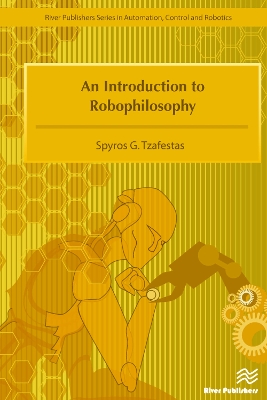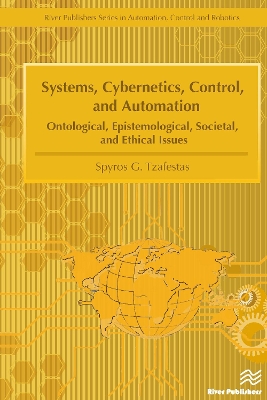River Publishers Series in Automation, Control and Robotics
2 total works
Modern robots have arrived at a very matured state both in their mechanical / control aspects and their mental aspects. An Introduction to Robophilosophy explores the philosophical questions that arise in the development, creation, and use of mental - anthropomorphic and zoomorphic- robots that are capable of semiautonomous / autonomous operation, decision making and human-like action, being able to socially interact with humans and exhibit behavior similar to human beings or animals. Coverage first presents fundamental concepts, and an overview of philosophy, philosophy of science, and philosophy of technology. The six principal mental capabilities of modern robots, namely cognition, intelligence, autonomy, consciousness, conscience, and ethics are then studied from a philosophical point of view. They actually represent the product of technological embodiment of cognitive features to robots. Overall, readers are provided a consolidated thorough investigation of the philosophical aspects of these mental capabilities when embedded to robots. This book will serve as an ideal educational source in engineering and robotics courses as well as an introductory reference for researchers in the field of robotics, and it includes a rich bibliography.
Systems, cybernetics, control, and automation (SCCA) are four interrelated and overlapping scientific and technological fields that have contributed substantially to the development, growth, and progress of human society. A large number of models, methods, and tools were developed that assure high efficiency of SCCA applied to practical situations. The real-life applications of SCCA encompass a wide range of man-made or biological systems, including transportations, power generation, chemical industry, robotics, manufacturing, cybernetics organisms (cyborgs), aviation, economic systems, enterprise, systems, medical/health systems, environmental applications, and so on. The SCCA fields exhibit strong influences on society and rise, during their use and application, many ethical concerns and dilemmas.
This book provides a consolidated and concise overview of SCCA, in a single volume for the first time, focusing on ontological, epistemological, social impact, ethical, and general philosophical issues. It is appropriate for use in engineering courses as a convenient tutorial source providing fundamental conceptual and educational material on these issues, or for independent reading by students and scientists.
Included in the book is:
• Background material on philosophy and systems theory
• Major ontological, epistemological, societal and ethical/philosophical aspects of the four fields that are considered
• Over 400 references and a list of 130 additional books in the relevant fields
• Over 100 colored photos and 70 line figures that illustrate the text
This book provides a consolidated and concise overview of SCCA, in a single volume for the first time, focusing on ontological, epistemological, social impact, ethical, and general philosophical issues. It is appropriate for use in engineering courses as a convenient tutorial source providing fundamental conceptual and educational material on these issues, or for independent reading by students and scientists.
Included in the book is:
• Background material on philosophy and systems theory
• Major ontological, epistemological, societal and ethical/philosophical aspects of the four fields that are considered
• Over 400 references and a list of 130 additional books in the relevant fields
• Over 100 colored photos and 70 line figures that illustrate the text

